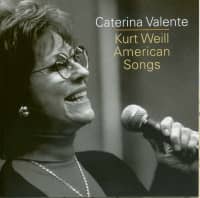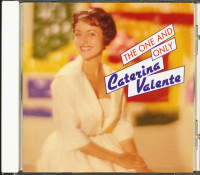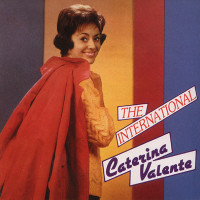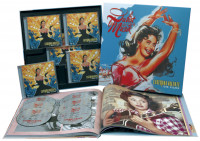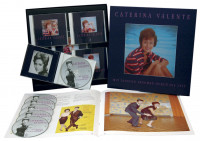Caterina Valente Kurt Weill - American Songs (CD)
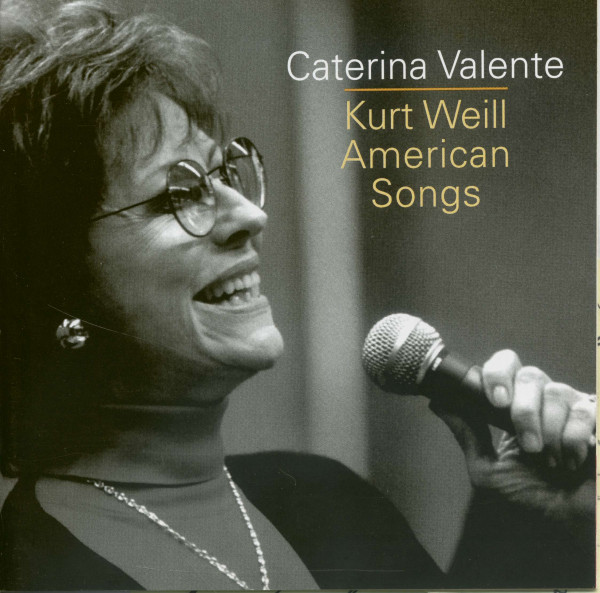
* incl. VAT / plus shipping costsDepending on the country of delivery, the VAT at checkout may vary.
Ready to ship today,
delivery time** appr. 1-3 workdays
- catalog number:BCD16044
- weight in Kg 0.115
Caterina Valente: Kurt Weill - American Songs (CD)
What was meant here was Weill's music for the opera "Die Bürgschaft". After the premiere of another opera "Der Silbersee", for which Georg Kaiser wrote the libretto, the threat became more open and brutal.
One month after the premiere in March 1933, issue 4/5 of the same magazine "Deutsche Bühnen-korrespondenz" read: "Mr. Weill, this might have been the last attempt of your destructive work! now it has an end forever!". On 21 March 1933 Kurt Weill fled to Paris together with Lotte Lenya, experiencing the encouragement and courage of personalities such as Igor Srawinsky, Darius Milhaud, Arthur Honegger, Andre Gide, Jean Cocteau, Pablo Picasso and Fernand Leger. Kurt Weill throws himself into the work, composes the ballet "Die sieben Todsünden der Kleinbürger" ("The Seven Deadly Sins of the petty bourgeois"), which has its triumphant premiere under the choreography of Georges Balanchine on 7 June 1933 in the "Theätre des Champs Elysees". Walter Mehring writes in the exile magazine "Das neue Tagebuch": "It was a great evening. An elite celebrated artists and performers, as one was used to from the great epoch of German theatre art".
In exile he was also persecuted by the Nazis, who deliberately disturbed the performances of his works. Weill's financial situation is tense. The Nazis have meanwhile blocked his German royalty account and are forcing his publisher "Universal Edition" to terminate the contract with him. Weill keeps his head above water with compositions to order. Songs, chansons, a musical comedy and an operetta are created. Max Reinhardt calls him to Salzburg to compose the music for Franz Werfel's opus "The Eternal Road". Convinced and enthusiastic about the project, which will be premiered in New York in 1935, he sketches great musical scenes.
In Germany, on the other hand, he is exterminated, insulted with the worst vocabulary. Kurt Weill - as _Jürgen Schebera writes in his book "Kurt Weill - Life and Work" - "resigned to Germany". He is afraid, his confidence in Europe is leaving him. Kurt Weill decides on a new beginning: America is hope! On September 10, 1935, he and Lotte Lenya arrive in New York. What about today? For explainable reasons, the American Kurt Weil! is mostly still a book with seven seals for us here in Germany. Music lovers immediately associate his name with the "Threepenny Opera" and Lotte Lenya, many know about "Mahagonny", "Happy End" and "The Seven Deadly Sins". Maybe one or the other also knows the world-famous "September Song". But a significant part of the work of "American Kurt Weill" lies in the dark. 1935 Kurt Weill is unknown in the USA. In 1933 his "Three Penny Opera" was performed on New York's Broadway, but the critics harshly rejected it: "Communism with sugar icing"! Nobody here likes his "European music" (as far as it is known to initiates at all).
In 1936 Weill, sociable and willing to learn, met with the makers of the left-wing and independent "Group Theatre" and together they conceived his first musical "Johnny Johnson", a pacifist parable. The play is not a great success, but Weil! at least has his foot in the door to Broadway. In 1937, in January and after enormous financial difficulties, the opus "The Eternal Road" finally (!) premieres at the "Manhattan Opera House". It becomes a triumph for Franz Werfel, Max Reinhardt and Kurt Weil! He's known everywhere in one fell swoop. In 1938, the great American playwright Maxwell Anderson asked for his help with the musical "Knickerbocker Holiday", an ironic historical consideration of the emergence of the city and the state of New York. In 1939, now respected, he wrote a massive work on order for a railway exhibition, "Railroads an Parade". In 1940 Maxwell Anderson asked for stage music for his new play "Journey to Jerusalem". In 1941, he achieved a huge success on Broadway with "Lady in the Dark", a psychoanalytical parable about a successful woman seeking her identity. In 1942, he writes "One Touch of Venus." Critics praise him as "the composer of sophistic scores". Hollywood calls and Weill follows...
Works by the American Kurt Weill
Johnny Johnson (book and texts Paul Green) Premiere: November 19, 1936, 44th Street Theatre, 68 performances The Eternal Road (book and texts Franz Werfel) Premiere: January 7, 1937, Manhattan Opera House, 153 performances Knickerbocker Holiday (book and texts Maxwell Anderson) Premiere: January 19, 1937, Manhattan Opera House, 153 performances Knickerbocker Holiday (book and texts Maxwell Anderson) Premiere: January 19, 1936, 44th Street Theatre, 68 performances The Eternal Road (book and texts Franz Werfel) Premiere: January 7, 1937, Manhattan Opera House, 153 performances Knickerbocker Holiday (book and texts Maxwell Anderson) Premiere: November 19, 1937, Manhattan Opera House, 153, Knickerbocker Holiday (book and texts Maxwell Anderson) March 1945, A lein Theatre, 43 performances A Flag is Born (book Ben Hecht) Premiere: September 5, 1946, Alvin Theatre, 120 performances Street Scene (book/texts Eimer Rice, Langston Hughes) Premiere: January 9, 1947, Adelphi Theatre, 148 performances Love Life (book and texts Alan jay Lerner) Premiere: 7. October 1948, 46th Street Theatre, 252 performances Lost in the Stars (book and texts Maxwell Anderson) Premiere: October 30, 1949, 281 performances The Threepenny Opera (2nd edited version Marc Blitzstein) Premiere: March 10, 1954, Theatre de Lvs (off-Broadway), 2706 performances
Caterina Valente
The legend of her life is ellen-long. The chronicler wonders when she had any private time at all. Her Italian parents Maria and Guiseppe Valente were coveted musical virtuosos of a varietal and circus era that no longer exists today. With them she travels in the 30's and 40's all over Europe. After the destruction of Wroclaw, the family is interned: On adventurous routes through Poland and Russia she reached Paris after the end of the war in 1945. From then on, Caterina worked on her own career. But whatever she tries, it won't bring the desired success. In 1952 she married the German juggler Eric von Aro, who later became her consultant and manager.
In 1953, she first came forward. Schweizer Rundfunk, then by Hessischer Rundfunk and finally by Südwestfunk as a singer. Kurt Edelhagen hires her for his band. Wherever she goes, one cheers for the spirited singer. The record industry is getting clairaudient. In 1954 Kurt Feltz wrote for her the Cole Porter title "Ganz Paris träumt von der Liebe" ("The whole of Paris dreams of love"): This is the breakthrough! The following facts read like a fairy tale book of the show business: no music film of the 50s and 60s without their participation, recordings with the most famous soloists and bands of the jazz scene, many record awards, a successful German TV series "Bonjour Catrin", acclaimed tours all over the world, guest in the shows of Dean Martin, Danny Kaye, Bing Crosby and Johnny Carson, guest performances in Las Vegas. In 1965 Sammy Davis jr. awards her the American television Oscar, the "Farne Award", in the same year she receives the "Golden Camera".
1966: The Federal Cross of Merit in recognition of her worldwide services to the Federal Republic of Germany as "Ambassador of German Show Business", then again tours and galas in the metropolises of Europe. Your private happiness falls by the wayside. Their marriages with Eric von Aro and later with the film composer Roy Budd fail. But she's too professional to resign herself for long. The work on the stages of the world and the encouragement of the audience creates the defiant feeling: I'm still here! Caterina Valente a world star who has remained modest: "I don't want to be twenty again. now I am calmer, more patient, more open. Every age has its own special charm... You always have to work on yourself. When I say bye-bye to the world, I haven't been able to do half." J.S.
Roger Kellaway
"He is a jazz pianist who immediately inspires awe - and certainly all over the world!" writes jazz pope Leonard Feather about this all-rounder. Then he himself freezes in awe and only lists who helped Roger Kellaway and whom Roger Kellaway to the musical leaps. As unlikely as it may be to read: there is hardly a branch of jazz, pop music or new music in which he has not left his mark. Born in 1939 in Waban, Massachusetts, he is placed on the "classical" piano by his music-loving parents! Everything goes its educational "decent" way, until he discovers jazz at the age of 12 years. For him, jazz is music without limits, allowing experiment and improvisation. Roger Kellaway is only 15 years old when he amazes the audience with pianistic highlights and clever arrangements. He studies at the "New England Conservatory" in Boston, plays in Dixieland bands alongside, gets to know Django Reinhardt's music, experiments with twelve-tone series, plays classical piano, learns bass and cello (an instrument he loves very much), sings as a bass baritone with the "Boston Symphony", sets lyrics to music and composes.
After 6 years of musical hard work in New York, after practical experiences as one of many musicians in the bands of Jimmy McPartland, Ralph Martieri and Duke Hazlit, after exhausting studio work with Oliver Nelson, Clark Terry, Bob Brookmeyer, Wes Montgomery, Don Sebesky and others, after first club appearances as a soloist he goes to Los Angeles in 1965.
He finds a job in Las Vegas as musical accompanist to entertainer Jackie Leonard. As soloist, composer and bandleader he gets the "professional polish" so important in show business for one year. He learns the "timing", the "musical dramaturgy", without which a show is only a bland number revue. His skills spread and in Los Angeles singers like Bobby Darin, Barbra Streisand, Joni Mitchell and Carmen McRae are waiting for his creative advice. He also writes the music for his first film "Paper Lion", composes ertQuar-tette and solos for the cello virtuoso Edgar Lustgarten. Roger Kellaway acquires the reputation of a "sound designer". Jazz greats like Ray Brown, Stan Getz, Kenny Burrell, Sonny Rolliris, Herb Ellis, Ben Webster, Jon Hendricks, Oliver Nelson and many others spread his reputation through his arrangements. American television is asking for music for popular series like "All in the Family", "Archie Bunkers Place" and "Mash". Kellaway's title music becomes hits, as do his compositions for the films "A Star is Born" with Barbra Streisand, "Breathless" with Richard Gere and "Exile Speak", whose musical interpretation was awarded a prize at the festival in Madrid. He returns to New York in 1986. Zubin Mehta, head of the "New York Philharmonie", commissions him to write a composition. The jazz clubs are rushing for solo concerts. The record industry is asking. He plays for and produces with Eddie Daniels, Dick Hyman, Stephan Grapelli, Paquito d'Rivera and the virtuoso cellist Yo-Yo Ma. When asked about his work, Roger Kellaway simply replies: "Everything happens exactly as I had hoped - and that's a wonderful life!
Jerry van Rooyen and the WDR Big Band
Dutch-born Jerry van Rooyen came into contact with music at a very early age. Together with his brother Ack van Rooyen, who also belongs to the European jazz elite, he received trumpet lessons, later played sessions in jazz clubs for nights on end, until he finally discovered his passion for writing. From then on there was the arranger and composer Jerry van Rooyen, whose work was soon in demand with the continent's leading big bands. Together with Peter Herbolzheimer and Dieter Reith, he wrote the opening music for Kurt Edelhagen's orchestra at the 1972 Olympic Games in Munich, which earned him increasing popularity alongside the Federal Cross of Merit. Jerry van Rooyen also became more and more famous as an orchestra leader. 1984 under
as guest conductor with the WDR Big Band, he took a tour of Southeast Asia, which became a great international success. The well-known American jazz critic Ira Gitler wrote in the Washington-based "Jazz Times" about a concert at the Bombay Jazz Festival: "Under the direction of Jerry van Rooyen, the WDR Big Band proved to be a world-class ensemble.
Surely such international recognition contributed not insignificantly to the fact that the sympathetic Dutchman was entrusted with the chief conducting of this band in 1985. Since then, the WDR Big Band has gained a lot of interest in jazz.
In a sense, one can certainly speak of a direct continuation of the Cologne Big Band tradition - for which names like Kurt Edelhagen, Kenny Clarke and Francy Boland stand. A tradition that Jerry van Rooyen was also instrumental in founding with his arrangements, which he wrote for Kurt Edelhagen's orchestra, among others. The WDR Big Band undoubtedly has a great potential of profiled jazz soloists, who are joined by international guest soloists for concerts and studio productions. Jerry van Rooyen knows how to lead the WDR Big Band and their music to success with sovereignty and charm. Full, often sold out concerts are the visible proof of the popularity of the band and their sympathetic conductor, R.B.
WDR Big Band in concert January 1990 7th Jazz Night Stadttheater Aachen with Bob Mintzer as guest conductor
Article properties:Caterina Valente: Kurt Weill - American Songs (CD)
Interpret: Caterina Valente
Album titlle: Kurt Weill - American Songs (CD)
Genre Schlager und Volksmusik
Label Bear Family Records
- Preiscode AH
Artikelart CD
EAN: 4000127160447
- weight in Kg 0.115
| Valente, Caterina - Kurt Weill - American Songs (CD) CD 1 | ||||
|---|---|---|---|---|
| 01 | One Life To Live (from 'Lady In The Dark') | Caterina Valente | ||
| 02 | Green-Up Time (from 'Love Life') | Caterina Valente | ||
| 03 | One Touch Of Venus | Caterina Valente | ||
| 04 | Here I'll Stay (from 'Love Life') | Caterina Valente | ||
| 05 | Medley: Speak Low (from'One Touch Of Venus')/ | Caterina Valente | ||
| 06 | September Song (from 'Knickerbocker Holiday') | Caterina Valente | ||
| 07 | Tschaikowsky (from 'Lady In The Dark') | Caterina Valente | ||
| 08 | Sing Me Not A Ballad (from 'The Firebrand Of | Caterina Valente | ||
| 09 | Florence') | Caterina Valente | ||
| 10 | Listen To My Song | Caterina Valente | ||
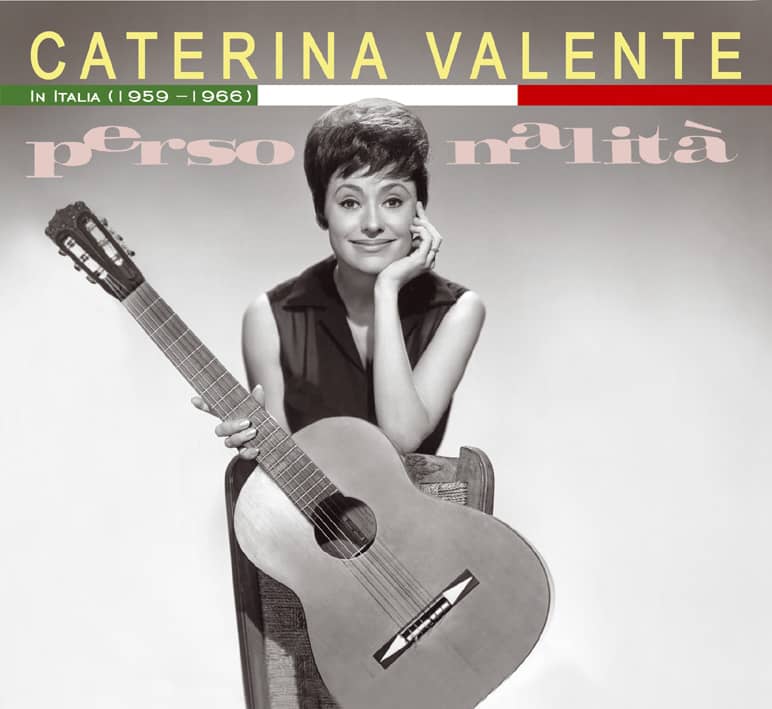
Caterina Valente
October 25, 1929 was a'black Friday' for Maria and Giuseppe Valente, who had lived in Paris with their three children Nina, Pietro and Silvio since 1924. Maria Valente was successful as a variety star on the world's major stages and was so well-known in the USA that she wanted to live and work with her family there. The stock market crash prevented these plans, because the Valente family, like so many others, lost all their savings. So they stayed in Paris, where the youngest daughter of Maria and Giuseppe was born on 14 January 1931: Caterina.
She admired her mother's versatility, perfection and great comedic talent. Maria Valente and her husband, an accordion virtuoso, also performed in important German variety theatres: the Hansa-Theater in Hamburg, the Scala in Berlin and the Friedrichsbau-Theater in Stuttgart. Here daughter Caterina was allowed on stage for the first time. She was five years old, danced in a ballet costume - a white tutu - and sang a song in French.
When World War II broke out in September 1939, the Valente family was in Switzerland for a guest performance and, like all foreigners, were expelled by the authorities. The Valentes were not allowed to return to Paris because Maria and Giuseppe Valente were Italian-born, the family had Italian citizenship. The forced departure to Italy meant for the children that they learned the language of the country in which their parents were born. In her autobiography'Bonjour, Katrin!' published in 1985, Caterina Valente describes the often very hard years of war and the early post-war years very impressively.
On her way to her solo career, Caterina had to break the fierce resistance of her parents, and she had to cope with additional disappointments. Thus a promising project with brother Silvio and the young Gilbert Bécaud failed; and a guest performance in a Paris club ended after only one evening, because the young singer had also been asked for animation services.
In November 1952 Caterina Valente and the German artist Gerd Scholz got married in Berchtesgaden. Scholz had worked successfully as a juggler under the name Eric van Aro before taking over the management of his wife. During a tour with the circus of the famous clown Grock, in which she appeared as a singer, the singer received an offer from Walo Linder, head of the entertainment department of Radio Zürich, in April 1953: he wanted to produce some songs of her choice for radio. Caterina's husband sent the recordings to German radio stations with Linder's permission. In Baden-Baden the bandleader Kurt Edelhagen, who is engaged with the Südwestfunk, heard the songs and recognized the singer's exceptional talent. After a test in the studio Edelhagen and his musicians knew that they had heard a highly talented singer who would make a huge career with the necessary portion of luck. Caterina Valente made her first recordings for the Hamburg Polydor at the age of 23.
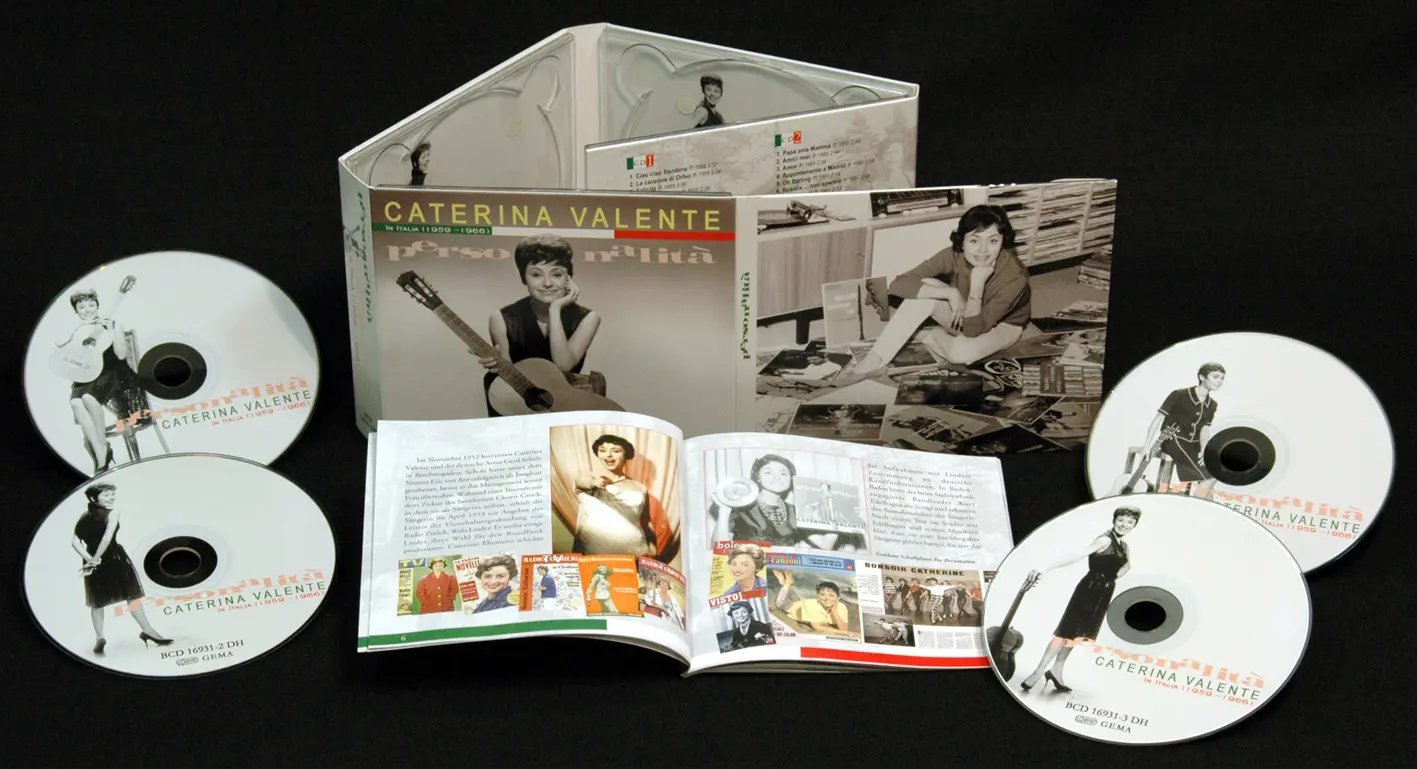
Already at the end of the first year Caterina and Ganz Paris dreamed of love for her first German sung big hit, which was followed by many more, until today unforgotten Valente songs. The artist also celebrated her first major successes outside Germany. The compositions Malaguena and The Breeze And I by the Cuban Ernesto Lecuona from his'Adalucia Suite' paved the way for her international career.
Between 1954 and 1962 12 movies were made. After three supporting roles, Caterina took the leading role nine times in films that very often sold out the big cinemas. She also conquered the then still new medium of television with flying colours. In 1957 'Bonsoir, Kathrin,' started the first personality show on German television. The show was so successful that more and more sequels were created. Many more own show series and appearances as a star guest in the shows of great colleagues all over the world followed. Also in the USA Caterina Valente conquered the audience with artistic perfection and charm. Along with legends such as Louis Armstrong, Perry Como, Ella Fitzgerald, Dean Martin and Danny Kaye, she was (and still is) a world-class entertainer. Bing Crosby was astonished at one of her performances: "Amazing, Caterina, how you glide not only through the music but also through the English lyrics - because you are actually Italian".
Excerpt from the booklet BCD16931 - Caterina Valente Personalita - 1959-1966 (4-CD)
Read more at: https://www.bear-family.de/valente-caterina-personalita-1959-1966-4-cd.html
Copyright © Bear Family Records
Auszug aus dem Booklet BCD16931 - Caterina Valente Personalita - 1959-1966 (4-CD)Read more at: https://www.bear-family.de/valente-caterina-personalita-1959-1966-4-cd.html
Copyright © Bear Family Records
Eine Sternstunde!
Dieses Konzert mit der WDR Big Band, aufgenommen in der Philharmonie Köln im April 1990 mit dem Dirigenten Jerry Van Rooyen, zeigt die große stimmliche Strahlkraft von Caterina Valente sowie die Virtuosität des Jazzpianisten und Arrangeurs Roger Kellaway, welche die Kurt Weill-Vorlagen exzellent in Szene setzten. Großartig!
Eine interessante Facette im musikalischen Schaffen von Caterina Valente
Die Stimme von Caterina Valente ist außerordentlich vielseitig und in vielen musikalischen Genres mit Bravour zu Hause. So auch bei dem Zusammenschnitt eines Konzerts in Düsseldorf von 2000. Nicht wirklich verständlich, aber natürlich nicht in der Autorität von Bear Familiy ist die Tatsache, dass es sich um eine Auswahl aus dem Konzert handelt, welche z.B. mit einem langen Instrumentaltitel anfängt und mit einem Titel endet, der nicht im Konzert gesungen wurde (folgt man dem Programmblatt des Konzerts). Auf einer CD wäre mehr Platz gewesen und so gebe ich nur 8 Punkte. Sonst ist alles bestens und Frau Valente in guter Form. Das Publikum bekommt man allerdings kaum mit und es gibt auch keinen Dialog mit dem Publikum. Das ist schade.
Großartig
Ein außergewöhnlicher Konzert-Mitschnitt, der daß außergewöhnliche Talent einer Valente bestätigt..

Ready to ship today, delivery time** appr. 1-3 workdays

Ready to ship today, delivery time** appr. 1-3 workdays

Ready to ship today, delivery time** appr. 1-3 workdays

Ready to ship today, delivery time** appr. 1-3 workdays
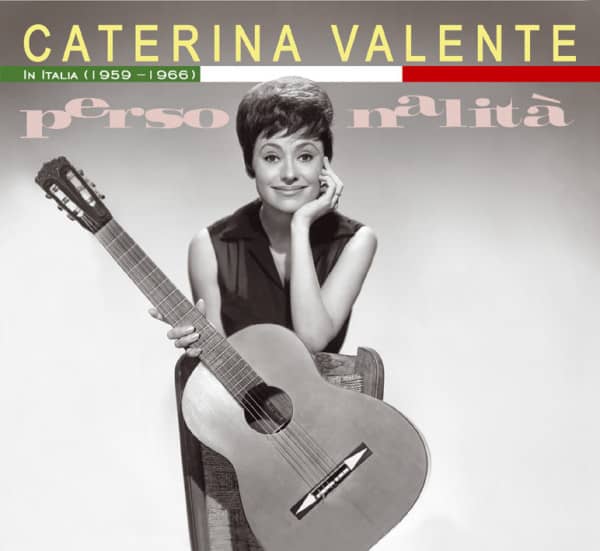
Ready to ship today, delivery time** appr. 1-3 workdays

Ready to ship today, delivery time** appr. 1-3 workdays

Ready to ship today, delivery time** appr. 1-3 workdays

Item has to be restocked

Ready to ship today, delivery time** appr. 1-3 workdays

Ready to ship today, delivery time** appr. 1-3 workdays

Ready to ship today, delivery time** appr. 1-3 workdays

Ready to ship today, delivery time** appr. 1-3 workdays

Ready to ship today, delivery time** appr. 1-3 workdays

only 1x still available
Ready to ship today, delivery time** appr. 1-3 workdays

only 1x still available
Ready to ship today, delivery time** appr. 1-3 workdays

Ready to ship today, delivery time** appr. 1-3 workdays

Ready to ship today, delivery time** appr. 1-3 workdays

only 1x still available
Ready to ship today, delivery time** appr. 1-3 workdays

Ready to ship today, delivery time** appr. 1-3 workdays
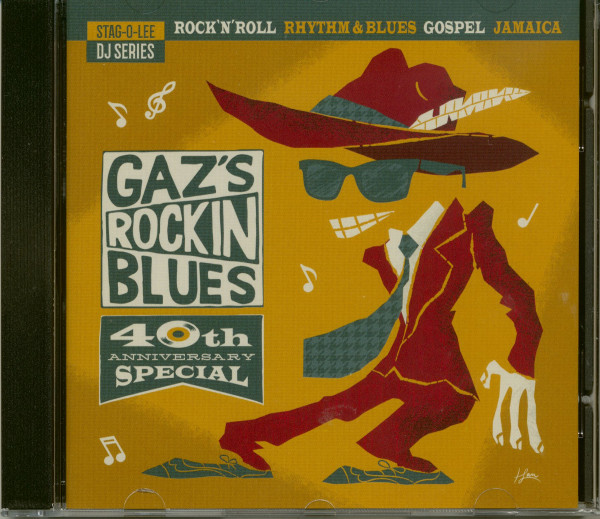
only 1x still available
Ready to ship today, delivery time** appr. 1-3 workdays

